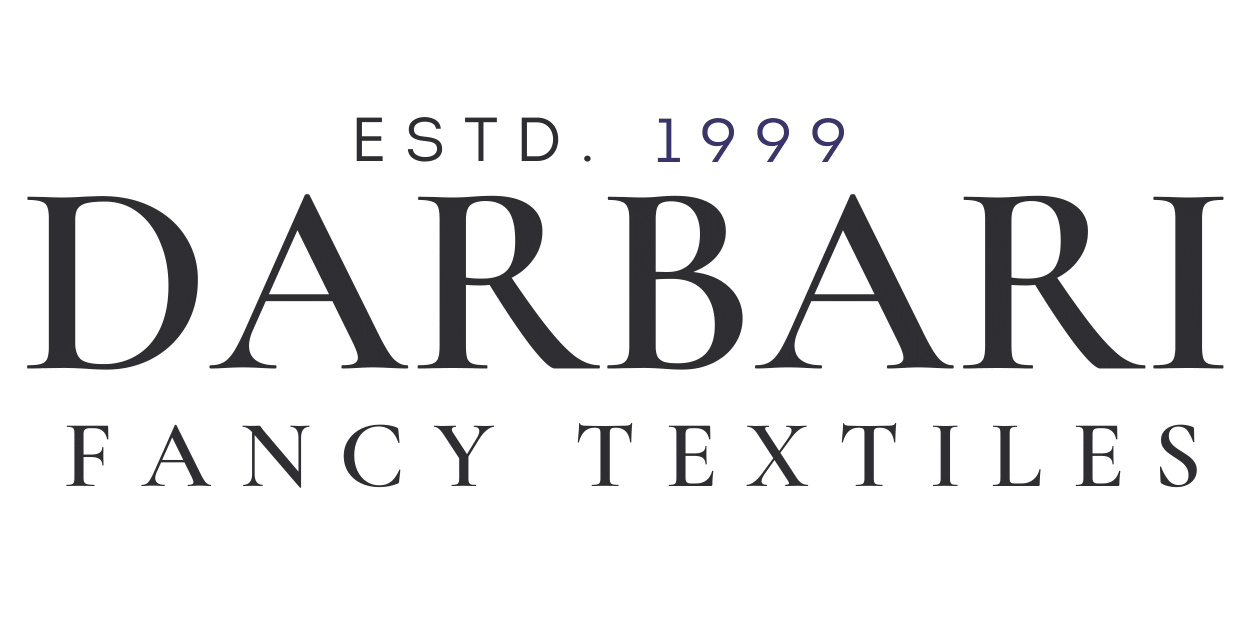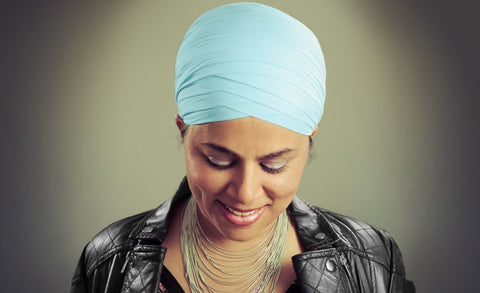Types of Turbans - Everything you need to know about Turbans
The very first thing that springs to mind when you think about turbans is Sikh men. In actuality, Sikhism is not the only faith that requires men to wear a turban, nor is it the only religion that does so. Turbans are also worn by women. Women from South Asia and Africa are the most likely to wear turbans. Various types of Turbans have been worn since the dawn of time. Some academics believe it was invented by the Egyptians, while others believe it originated in Persia, modern-day Iran. When you look at Mughal emperor portraits, you'll see that they're wearing a magnificent bedazzled headpiece. Turbans were worn by nobles regardless of their religious beliefs.
Various types of turbans
The Punjabi Turban is a cultural icon.
The most frequent headgear from various types of turbans, seen on men in North India is the Punjabi turban. Sikhs are the main wearers of the Punjabi turban style. These Punjabi turban styles, on the other hand, vary according to Sikh sect. A Sikh Guru's Punjabi turban, for example, will be knotted differently from a Jatt Sikh's. Turban fashions in Punjab can vary significantly from village to village and community to community.
Rajasthani turban.
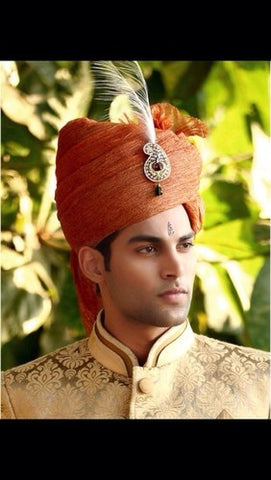
The crown of a Rajasthani turban is usually circular. When visiting Rajasthan, you will notice many guys wearing the Rajasthani turban. The Rajasthan turban is a classic Rajasthani turban that was first worn by Rajput monarchs. The Rajasthani turban is essentially a regal Rajasthani turban because Rajputs ruled Rajasthan before India became independent.
Turban from Patiala Shahi
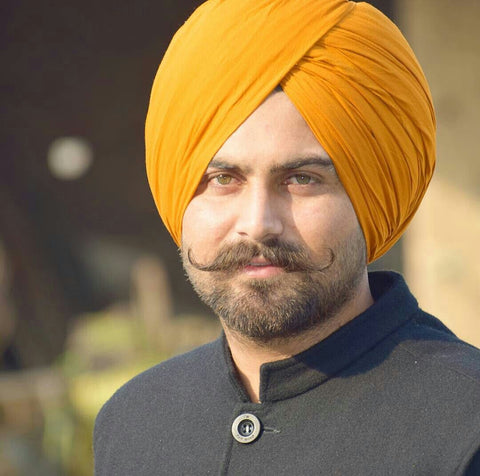
The Patiala shahi turban is the most common in Patiala, Punjab, and its surrounding cities. Patiala was ruled by the Maharaj of Patiala, who wore the Patiala shahi turban all the time. You might be wondering how to tie a Patiala shahi turban and how it differs from a Punjabi turban. Starting from one ear, fold the material around your head and down the opposite side of your head is how the Patiala turban is knotted. Then you return the cloth to the side where you started by pulling it up from the other ear. The pleats of the Patiala shahi turban are caused by this.
Dastaar Nok
The dastaar cloth is split into two three-meter lengths after being sliced in half. They are then sewed together to produce a "double patti," or a nok dastar.
Keski
A keski is a form of turban that is made from a lengthy bit of fabric that is approximately half the length of a typical "single turban," but is not chopped and sewed to make a double-width "Dual Turban" (or Double Patti).
Among young boys, this is a common sikh dastaar. It's most commonly worn as a casual turban or for sporting events.
Morni pagg
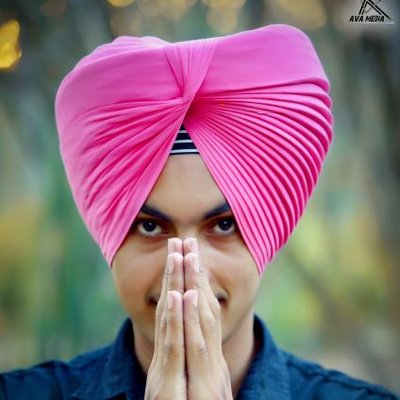
Morni Turban is a traditional turban that was commonly tied by everyone because there was no unique style established by anybody, and that was Just A Turban with any amount of single cloth in any color, which was known as Gol Pagg at the time. The inhabitants of MAJHA typically tied Gol pagg.
Due to the distance and the fashion of the area, patiala shahi pagg was not well-known in this area.
Folks in Amritsar wear very beautiful turbans, and they are quite bold and eccentric in fashion.As a result, it is also an AMRITSARI pagg. It is a highly well-known and pointed turban style.
Turbans of Various Colors
Sikhs who wear turbans are often seen wearing bright and vivid hues. It's not required to coordinate them with the rest of your ensemble. The most prevalent colors in various types of turbans are pink, orange, light blue, and yellow. Except in some areas, the colors have little meaning.
Dumalla
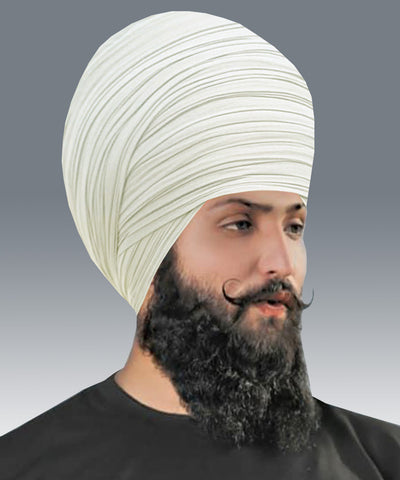
Dumalla is another name for Chand Tora. Nihang Khalsa Sikhs typically wear dumalla. It's a turban with a warrior appearance that Sikhs used to fight conflicts. The "Chand Tora" is a metal emblem that is worn at the front of the turban and consists of a crescent weapon and a double-edged sword.
Women's Turbans
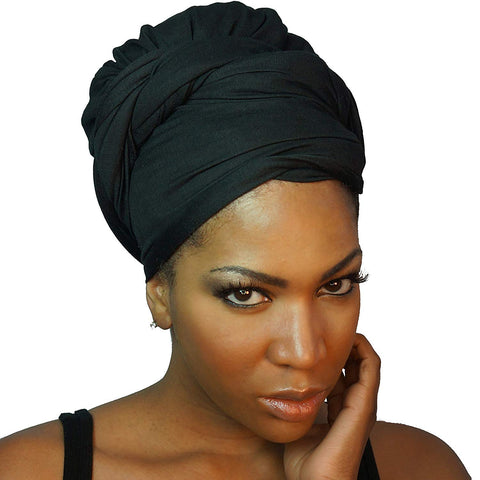
Previously, ladies did not wear turbans very often, but that has changed. Turbans are a popular choice among cancer patients who need to cover their heads. Cancer sufferers have abandoned the traditional scarf in favor of a more fashionable turban to cover their heads because it is more manageable. Different types of Turbans are worn by African women as part of their daily attire. Turbans are becoming more popular among women today.
Turban for Groom at Wedding
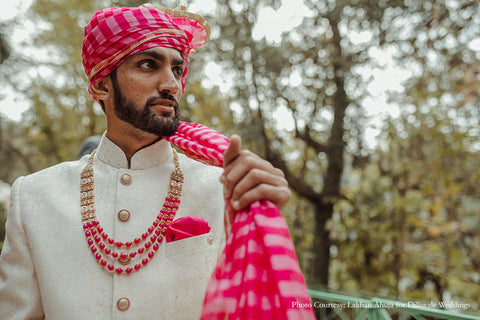
If you ever get the chance to attend a Sikh wedding, make sure your head is covered in a flamboyant, over-the-top turban, otherwise you'll feel out of place. With their loud music, rich attire, glittery decorations, and showy turbans, Indians know how to party. On certain occasions, such as weddings, a high-quality, decorative piece of an adornment is placed in the front of the turban. These are the icing on the cake.
Formal Occasion Turban
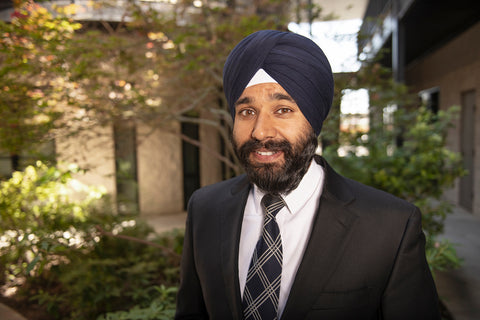
For a major conference or formal reception, wearing bright colors and striking prints might not be appropriate. Blue or black are fine at these times, especially in the workplace, because they don't scream "look at my headgear." Depending on the severity of the event's formality, you can wear your ordinary suit and footwear. Single breasted coats and well-pressed jeans in black, gray, charcoal, or blue will be enough for a simple office meeting.
Western Fashion World, Turbans
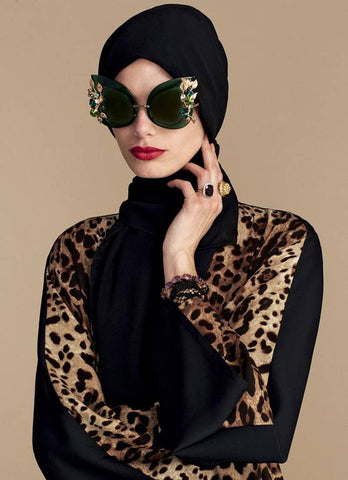
Western designers enjoy experimenting with and incorporating concepts from various civilizations in order to create something new and fashionable. Western fashion designers have been particularly fond of different types of turbans. Lana Turner, an actress who appears in the 1949 film The Postman Always Rings Twice and is shown wearing a basic turban, is one prominent example. In 1996, even the British Queen wore a turban.
Turbans made of silk — pure, delightful luxury
Silk Turban assists you in achieving the ultimate in luxurious lounging experiences while also caring for your hair. Mulberry Silk turban is used to give your hair all of the benefits of Mulberry Silk. The glossy, most effective side of the Silk for hair protection lies against your hair to naturally maintain hydration, prevent frizz, and generate fewer split ends, you also get a glossy, incredibly luxurious look on the outside while wearing silk turbans.
People wear vast types of turban style, and within each style, there is a great deal of variation depending on the individual's tastes.







